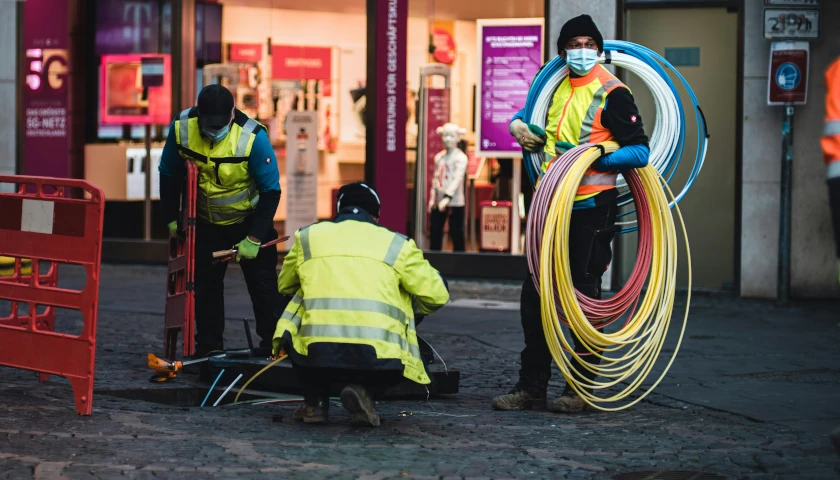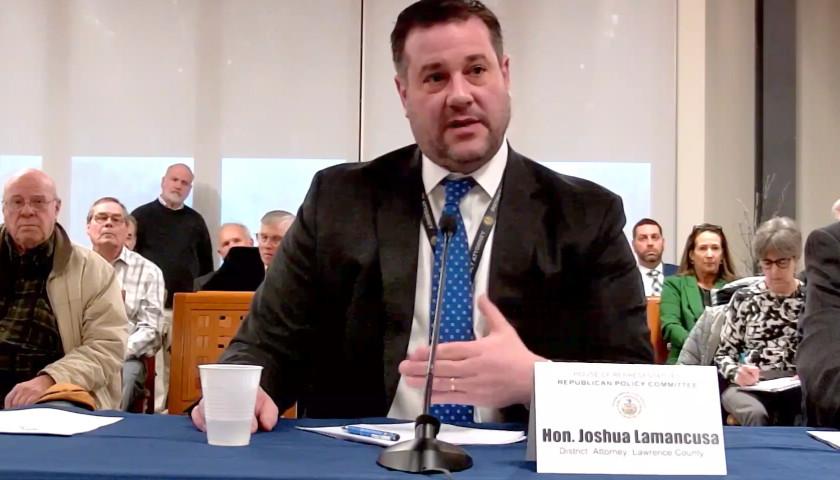by Anthony Hennen
As plans for an infusion of federal money to expand broadband in Pennsylvania continue, a telecom trade group warns of state rules that could handicap that very expansion.
As the Broadband Communications Association of Pennsylvania sees it, the state’s insistence on classifying workers as linemen, which drives up the price of the required wage, will hold the state back when federal funding rolls out over the next few years.
“The No. 1 issue in Pennsylvania is the prevailing wage statute,” BCAP President Todd Eachus said in a press release. “The state is applying the wrong classification to these projects which ultimately drives up project costs. We have simply asked for an appropriate classification of teledata lineman or cable splicer instead of the vastly more expensive electric lineman.”’
The warning is not the first from Eachus. At a House Republican Policy Committee hearing in January, he told legislators that the federal Broadband Equity Access and Development program was turning into a jobs program focused more on employment than building a functioning network.
The electric lineman classification usually accounts for workers trained to work on high-voltage projects, whereas the broadband workers would have other responsibilities.
Though passed in 2021, the BEAD program still hasn’t sent out money. States have been mapping out their current networks to find the unserved and underserved areas; Pennsylvania has more than 330,000.
The Pennsylvania Broadband Development Authority is in the process of accepting applications for grants and will submit to the federal government a final proposal for how to spend the money in May 2025; the money is expected to be spent through 2032.
Eachus, who also serves on the PBDA’s technical sub-committee, raised BCAP’s concerns in August to FCC Commissioner Brendan Carr during a roundtable hosted by Congressman John Joyce, R-Blair.
“In addition to labor concerns, the group, consisting of business, education, agriculture and health care leaders, spoke about permitting processes at the local level,” BCAP noted. “Couple that with pole attachment delays, providers do not see deployment reaching unserved locations any time soon.”
Commissioner Carr was supportive of some of the calls for reform.
“It has been 995 days since the bill was passed but not a single home or business has been connected or a single turn of the shovel with this money,” Carr said. “It’s definitely not too late to course correct.”
Permitting, especially, stood out.
“They’re stepping on the gas while applying the brakes at the same time,” Carr said.
The long timeframe from BEAD’s passage to when the $42.5 billion will actually reach state broadband agencies has critics calling the program overly complicated and burdensome.
Another problem from the delay, though, may be how inaction has made it more expensive. Costs to build out the broadband network have gone up by 20%-30% due to inflation.
“If you would’ve given the money to states in 2020 and said, ‘you just go get it built,’ they would’ve gotten twice as much done with the money than they will because of all this nonsense,” Doug Dawson, a telecoms consultant, previously told The Center Square in July.
– – –
Anthony Hennen is a reporter for The Center Square news wire service, covering Pennsylvania, and co-host of Pennsylvania in Focus, a weekly podcast on America’s Talking Network. Previously, he worked for Philadelphia Weekly and the James G. Martin Center for Academic Renewal. He is managing editor of Expatalachians, a journalism project focused on the Appalachian region.
Photo “Internet Install” by Mika Baumeister.





